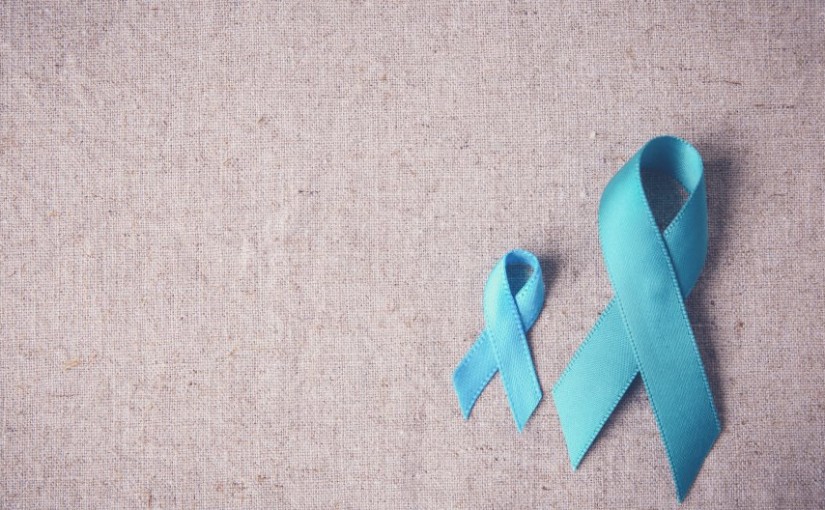By: Sherry Pollex
When talking about my cancer diagnosis, I’d say there are two parts to my story: The first part, when I fought for answers, and the second part, when I took control of finding them for myself.
Two years ago, I felt like life was good. My life partner, NASCAR Sprint Cup driver Martin Truex Jr., and I had been together for 10 years and had just started talking about starting a family. I’ve always wanted to be a mom—I knew I wanted that mother-daughter relationship that I have with my mom. She’s my best friend.
My days were spent managing my boutique in Mooresville, N.C., and advocating for childhood cancer through the Martin Truex, Jr. Foundation, which Martin and I started in 2007. I was busy planning our annual fundraising event “Catwalk for a Cause,” a fashion show where kids with cancer walk the runway with NASCAR’s biggest stars to raise money for childhood cancer.
Amid our busy life, the star-studded events and the privilege of being able to advocate for families whose lives had been upended, I was annoyed by persistent abdominal pain. Over months, it worsened, and my belly was so bloated that I wondered if I was pregnant.
I knew something wasn’t right. I needed to trust my instincts – and I did. I called my doctor.
When a woman tells her doctor about the severe, persistent abdominal pain and bloating, red flags should go up. For my primary care physician, they did. She referred me to an OB/GYN. But here’s the thing: The symptoms of ovarian cancer are things women could experience every day (think bloating, abdominal pain, trouble eating, and urinary symptoms), so a correct diagnosis is often hard to get.
Via ultrasound, my OB diagnosed me with “normal” ovarian cysts. Ovarian cysts are fairly common in women, and they usually resolve on their own. He wasn’t worried; he said they would go away over time.
I didn’t know the symptoms of ovarian cancer at the time, so I couldn’t advocate for myself as effectively as I hope you can do after reading this. I asked questions, but when someone with a medical degree dismisses your concerns, how many of us hesitate to keep pushing?
But as women, we know our bodies, and even if we can’t rattle off the exact date our last period began, chances are good we can ballpark it. In our guts, we know when something is wrong. But instincts aren’t always enough to propel a medical team into motion. I had two choices: Go along with my doctor’s optimism or keep pushing for an answer.
I pushed. I asked a family friend, a gastrointestinal surgeon, for help. He ordered a CT scan for the following morning.
After four months of complaining about my symptoms to different doctors, I finally had an answer: Stage 3C ovarian cancer. I didn’t just have cysts. I had cancerous tumors that were rapidly spreading from my pelvis into my peritoneal area. Later, my surgeon told me it looked like someone had taken a handful of sand and thrown it into my body, each granule a lethal cancerous cell. I was in trouble and needed help fast.
If I hadn’t kept pushing, I most likely wouldn’t be alive now.
After a seven-hour debulking surgery (which is a medical term for removing all the cancer that is visible to the doctor’s eye) I was about to begin six grueling months of chemotherapy. Now, I recognize that surgery as the beginning of the second part of my life: when I decided to take as much control over my body as I could.
When chemo wracked my body and I lost almost 30 lbs from my already slender frame, again I turned to my doctors for advice. And again, my instincts revolted at their counsel.
They told me, “Go home and eat cheeseburgers and drink milkshakes” to gain my weight back. But my instincts screamed, “No more bad stuff! No more toxins!” That’s when I dove into educating myself about healthy nutrition and integrative practices to heal my body. My regimen now includes a plant-based diet, juicing, supplements, acupuncture, massage therapy, yoga and meditation.
I’ve also learned it’s OK to relax and have Milk Duds at the movies because I want to fully live this life that was almost taken from me. And yes, sometimes Milk Duds are the answer.
My oncologist says he’s never seen anyone go through 17 months of chemotherapy (I opted to do an extra year of chemo) and emerge so strong and healthy. I tell him it took a lot of fighting to get here—and I’m not about to stop now. I hope my story inspires you to keep fighting, too.
To read this entire article on The Clearity Portal, please click here.


